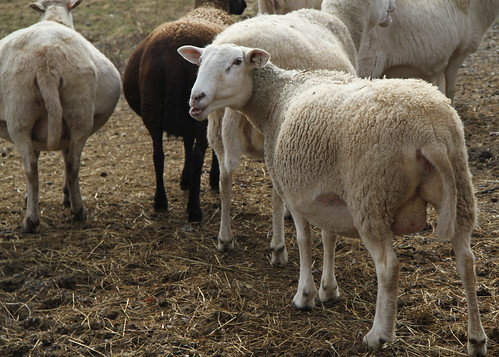Ewes experience a temporary decline in resistance to gastrointestinal nematodes (GIN) during the periparturient period, characterized by a rise in fecal egg count (FEC) that represents a major source of pasture contamination for naïve progeny. The aim of an Irish study was to assess the effect of level of supplementation with digestible undegraded protein (DUP) during the last 6 weeks of pregnancy on periparturient FEC and the performance of ewes with a naturally acquired parasite infection.
 |
| Periparturient ewes |
Eighty-five Belclare and Belclare x Scottish Blackface twin/triplet-bearing ewes were allocated to 1 of 4 dietary groups representing the combination of 2 concentrates (DUP concentration 29 and 94 g/kg dry matter) with 2 levels of concentrate during the final 6 weeks of gestation. All ewes were housed during the pre-partum feeding period and offered grass silage ad libitum. After lambing, ewes and lambs grazed on permanent sheep pasture, without concentrate supplementation, until weaning (14 weeks post
lambing).
The effect of week (relative to lambing date) on FEC was highly
significant. However, diet did not influence FEC at any stage either pre- or post-partum. The changes in BW and BCS from 6 weeks before lambing to weaning were
not affected by the concentration of DUP in the supplement, but ewes on
treatments involving the higher level of supplementation lost less BW
and BCS.
The results of this study indicate that the
level of DUP supplementation during the last 6 weeks of pregnancy does
not affect FEC, BW or BCS of housed ewes with a naturally acquired GIN
infection.
Read abstract from Veterinary Parasitology (February 2017).


No comments:
Post a Comment